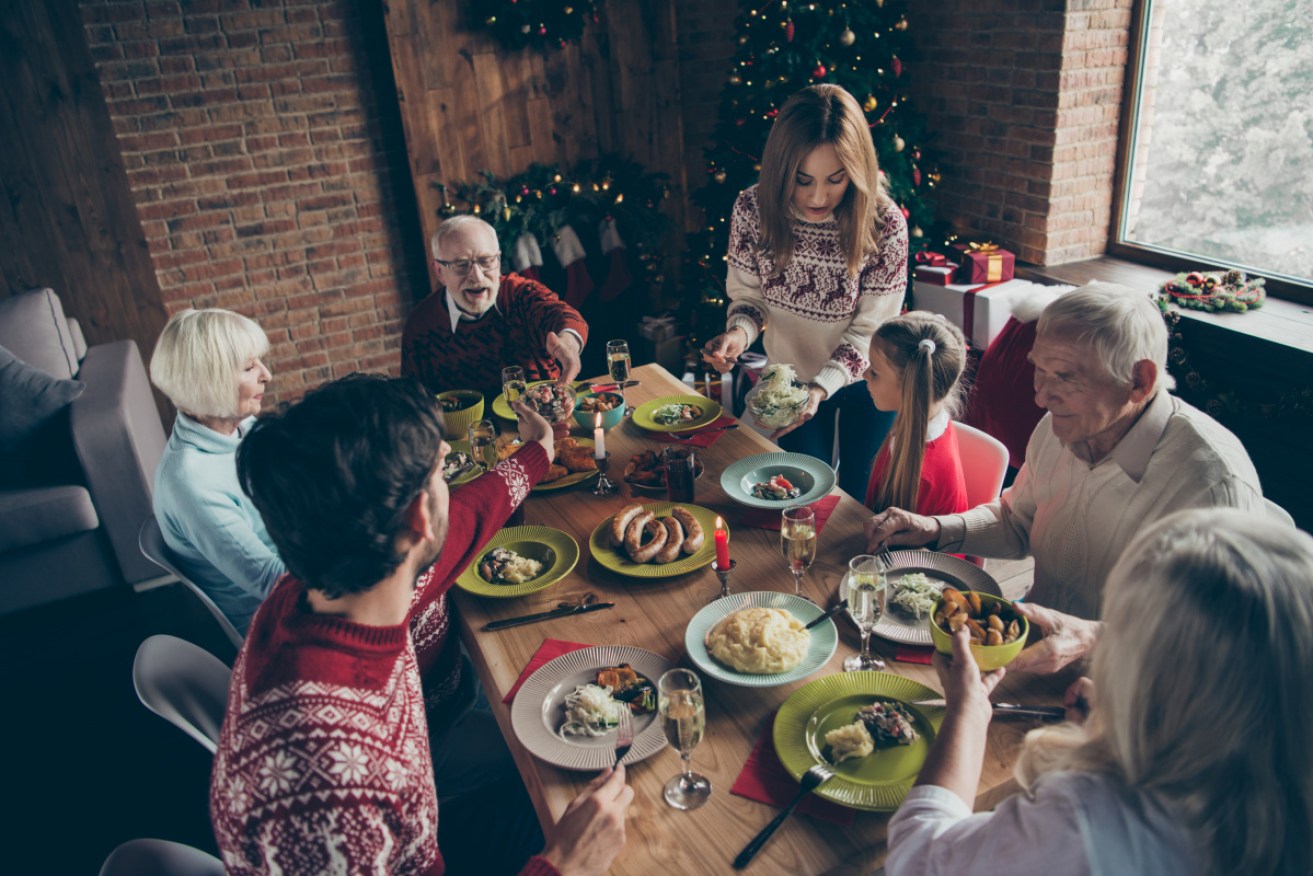Can Christmas save 2020? A greater sense of meaning for smaller gatherings


Even a small gathering for Christmas lunch might be tricky to manage in terms of social distancing. Will anyone bother? Photo: Getty
Christmas. Bah! Every year we read stories about how it’s a stressful time, marked by anxieties and old grudges as families get together, hit the booze and tend to revert to their childish selves.
That was in the good old days when spending time on your own, away from family dramas, was high on the list of what you might have wanted from Santa.
And now? We’re most of the way through a year where we’ve been locked away from big family gatherings. Borders closed. Visiting your aged grandma in the nursing home was prohibited.
The biggest joys of 2020 were finding toilet paper on the shelves and news of falling positive cases.
Suddenly Christmas might be the best thing going
And so Christmas, with all its daggy rituals, is starting to look a little magical. It’s something to look forward to. If there’s a tinge of anxiety, it’s what kind of Christmas will we be allowed to have?
Just this week, out of the blue, South Australia went into lockdown. This highlights the big question: What do I plan for? Is it worth buying plane tickets to Brisbane? Planning a road trip to Canberra or Adelaide or Bourke?
As psychologist Lyn Bender said: “Christmas this year may represent hope. But fear that it won’t bring a longed-for reunion.”
Consolation for young people hit hard by social isolation
Christmas is often said to be for the kids. This year that apples to people in their teens who became somewhat stuck in a kind of limbo.
Professor Deborah Lupton is Leader, the Vitalities Lab, Centre for Social Research in Health and Social Policy Research Centre, at the University of NSW.
As part of her research, Professor Lupton spoke to people of all age groups about their experiences during the first six months of COVID-19, found “for the most part it was young people who were most badly affected”.

For many Australians, COVID-19 made it impossible to visit elderly relatives. Photo: Getty
Not only were they losing their part-time jobs or having to go online to study, they were missing out on the company of their peers “and on important rites of passage … so they have missed out on major celebrations that are otherwise part of their early adulthood”.
Christmas, said Professor Lupton, “is one of the few things that have been left for people”.
She said that even though Australia has become “way more multiculturally diverse over the past 50 years, Christmas (and the time of year) is still the central celebration.”
And because people haven’t been able to see many family members in person, “people are looking forward to making up for that loss of connection”.
Notably, Christmas is a time when you catch up with elderly relatives.
“Some people might be thinking this is the last chance they’ll get to see their elderly relatives. And that’s another reason they’ll be looking forward to Christmas.”
Christmas was designed as a balm for tough times
Professor Lupton noted that in ancient times, when Christmas was still a pagan event, Yuletide – associated with the winter solstice – saw “people … living extremely hard lives, and it was those sorts of things (celebrations) that kept people going.”
War historian Dale Blair agrees.
“When you have had or are experiencing straitened circumstances, Christmas acts as a bit of a touchstone for normalcy,” Dr Blair said.
“By undergoing the routine of preparation, decorating and giving gifts, it reinforces the idea of better times.”
One of the most famous Christmas stories is that of the Christmas truce of 1914, when the British and the Germans came out of the trenches to sing, share treats and play football. The next day they were back killing one another.

The 1914 Christmas truce remains one of the most poignant Christmas stories from history. Fighting was put aside for the sake of the comfort of goodwill to all men. Perhaps, a few modern day family feuds might be out to rest thins year. Photo: Wikipedia/Creative Commons
“With those sorts of celebrations, people go out of their way to make it feel like they’re home,” he said.
University of Sydney historian Associate Professor Julia Horne said in World War I, once posted to the Middle East and Europe, soldiers did not return to Australia for the duration of their enlistment.
“They had leave, so chose where to spend (Christmas) that was within easy reach … those parts of France well behind the frontlines, to England, or if in the Middle East, perhaps Cairo or Alexandria,” she said.
“We also know that some Australian soldiers organised their own festivities, with one group going so far to produce a menu in French – sounding fabulous and delicious – but making the meal out of their rations of tinned ham and the like.”
The flip side, said Professor Horne, “was that families in Australia celebrated Christmas not even knowing if their sons, husbands, daughters were still alive.”








